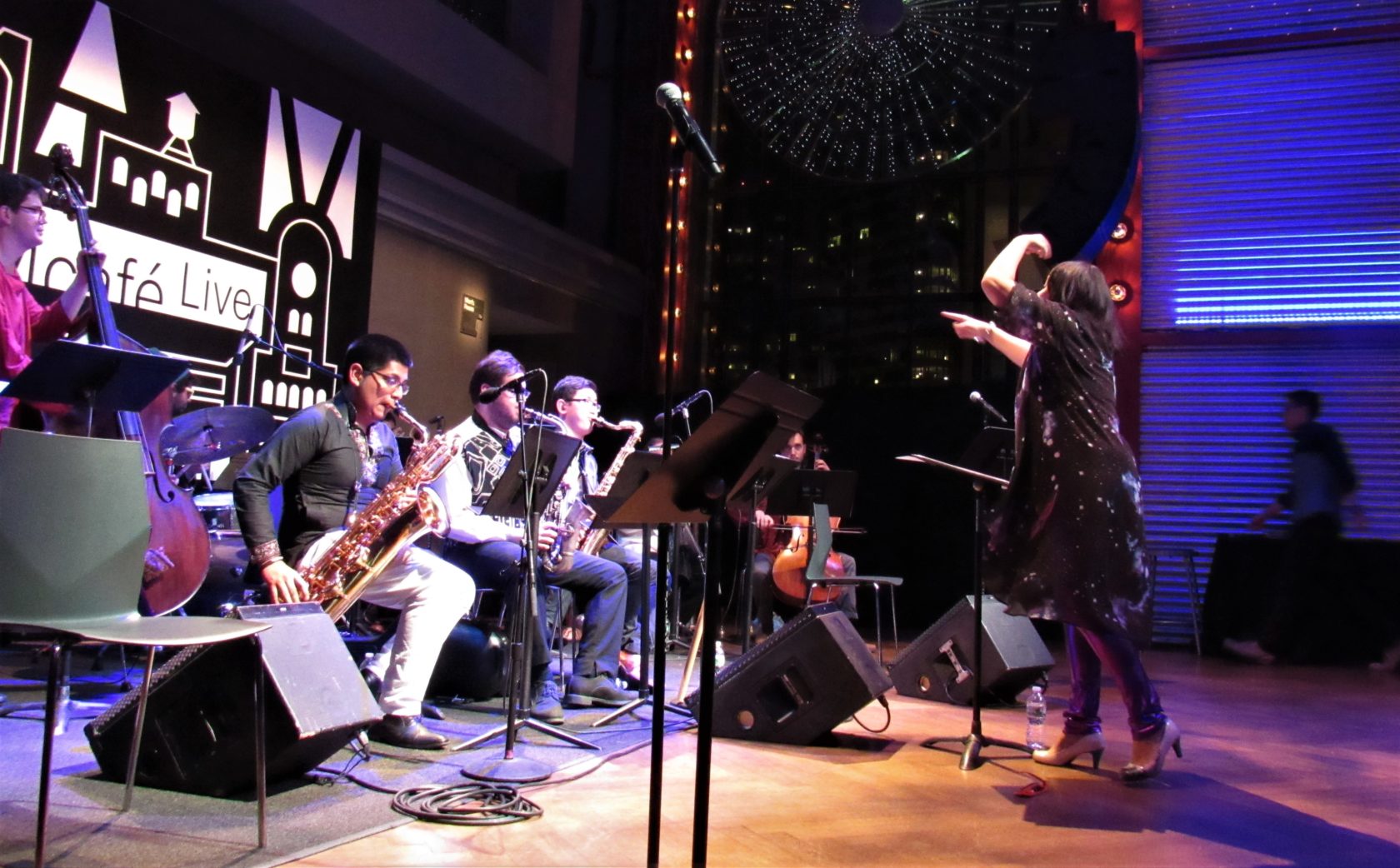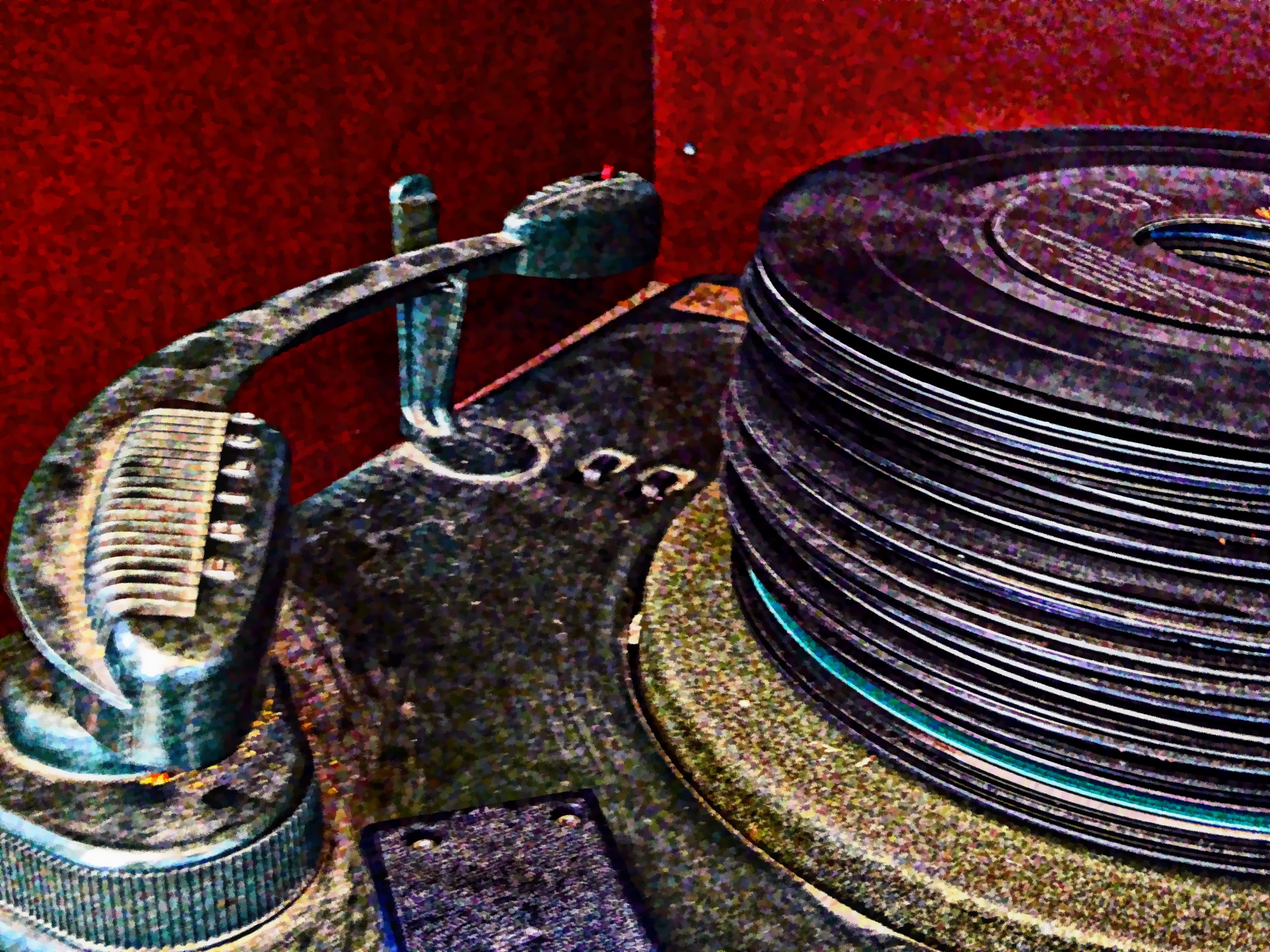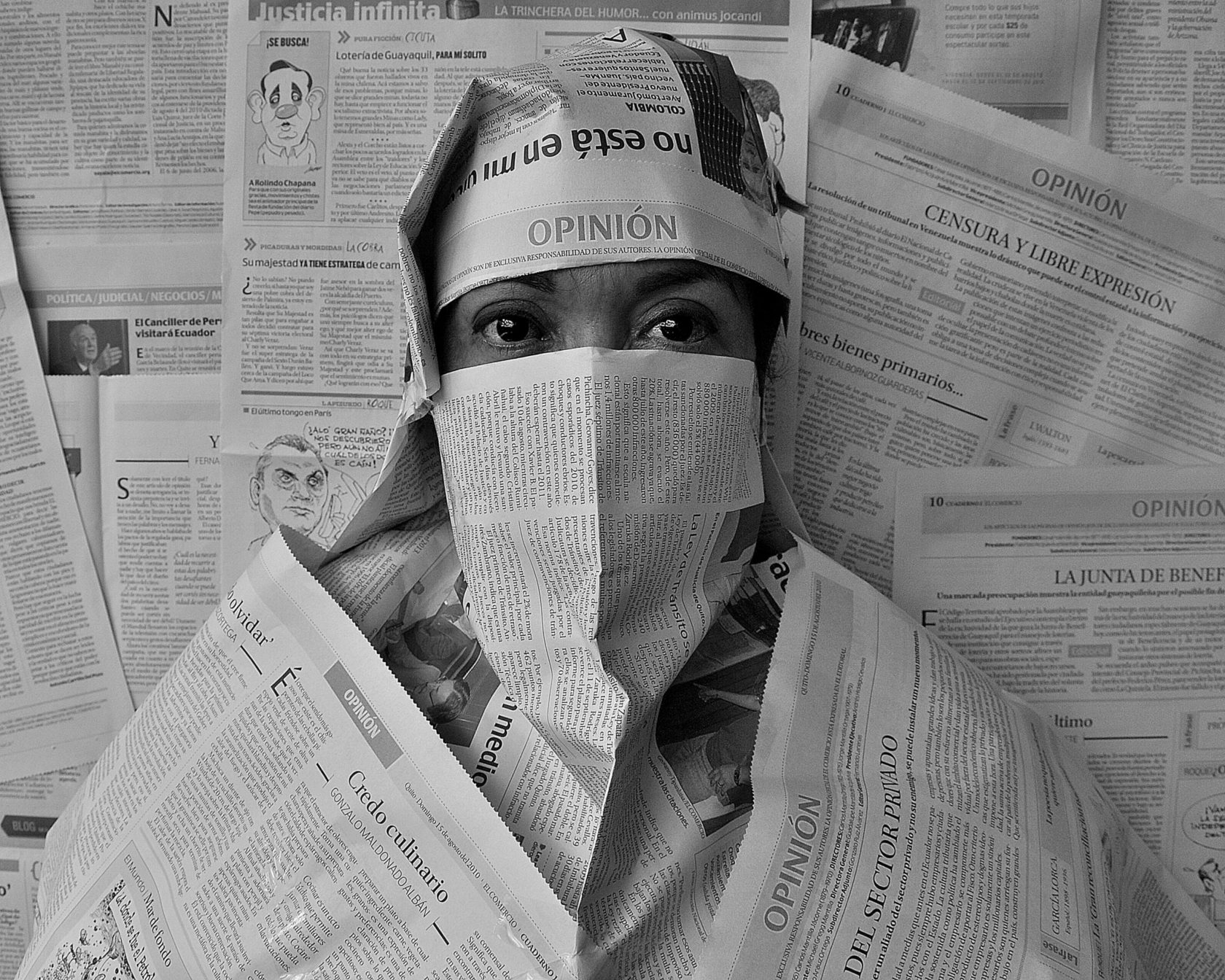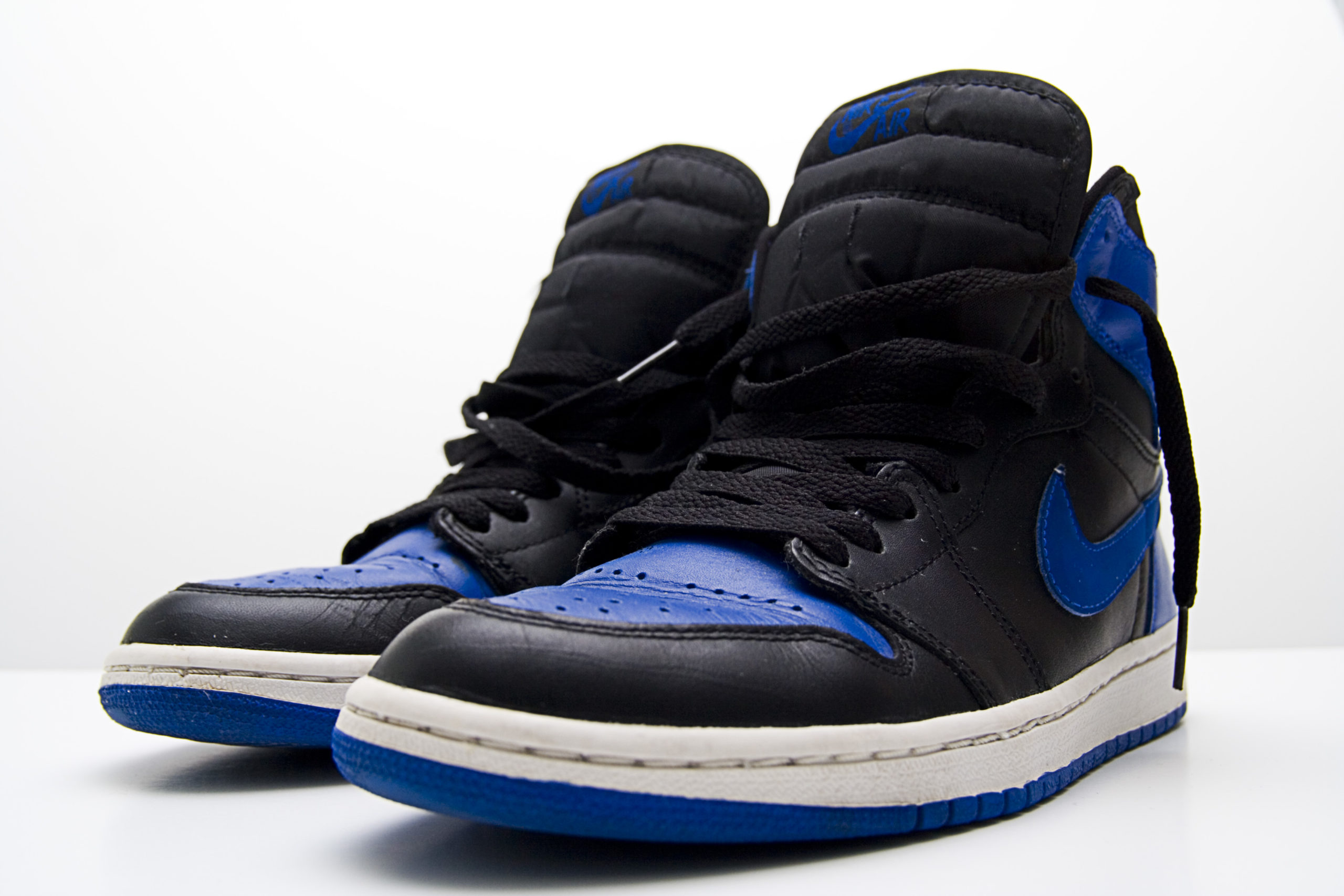
Marie Incontrera and the Eco-Music Big Band working their magic at Lincoln Center.
Those of us lucky enough to see the Eco-Music Big Band this weekend at Zinc Bar in the Village were privy to social innovations capable of big change, and musical innovations already making big sound.
The Eco-Music Big Band is a 15-piece jazz band that is heavy on brass, politics, and genre integration. They’re still a work in progress, but in the way that an abstract painting is always a work in progress: always beautiful, but always a half-step away from newer and bigger directions.
The Concert
Zinc Bar was full of onlookers enraptured by the Eco-Music Big Band’s performance. It was indeed hard to take your eyes off of them—somewhere between the spectacular talent displayed and the unexpected twists and turns of solos and improvisation, you were disinclined to miss a beat. They are a blink-and-you-miss-it kind of band, so one quick trip to the bar might make you miss the best riff of the night…until the next one comes along.
They played music by Fred Ho and Cal Massey and Marie Incontrera, as well as original pieces written by permanent or subbing musicians. Felix del Tredici performed a captivating, cartoonish, half-comedic-half-very-serious parody of George Bush’s 2003 Mission Accomplished speech that had him using his trombone as a tool in ways I’d ever imagined before: part instrument, part megaphone, beautiful and ugly and ridiculous and poignant all at once.
Overall, the music is, as its name suggests, big band jazz, but it’s progressive and extremely edgy, and isn’t afraid to push boundaries. The musicians, all extremely talented, are also unafraid to play with the notes and stray from the page. Improvisation occurs spontaneously, erupting from frequent solos.
Marie Incontrera demands and expects fearlessness from her band, it as the only attribute other than sheer talent that she requires. This likely has as much to do with her own passion, drive and steadfast work ethic as it does with the band’s origins in near-mythological greatness.
The Green Monster Big Band
The Eco-Music Big Band was born out of Fred Ho’s Green Monster Big Band last year, which is perhaps most famous for their successful campaign to free Russell Maroon Shoatz, a political prisoner now in his mid-70s, from solitary confinement (where he had been for 23 consecutive years) into the Pennsylvania prison’s general population. Fred Ho spearheaded the Maroon campaign, arranging and publishing “Maroon The Implacable,” a collection of Maroon’s political writings from prison. Anticipating his impending death from cancer, Fred Ho erected the Eco-Music Big Band and appointed Marie Incontrera to lead it.
Marie leads the Eco-Music Big Band in a similar direction with a slightly different approach. The concerns that the Eco-Music Big Band pursues are much less monolithic, though no less politically relevant. Rather than focusing on one man, or one issue, the Eco-Music Big Band looks at social politics more holistically. In January, they played a “Year of the Queer” concert and, as their name suggests, they are actively searching for ways to promote ecological consciousness more directly.
Watching the band hone in on a new sense of purpose, a new mission to work tirelessly towards, will be a beautiful process to overlook in the next few years. The music is certainly good enough for everybody, so widening their approach to appeal to potential fans who may not care much about “just one man” might be a very valuable tool for working towards social justice.
Marie Incontrera
Marie deserves an article all to herself, but for now she will unfortunately have to settle for a subsection. There only is a small handful of female conductors of orchestras and jazz big bands. There are very few female jazz musicians in general, unless you count singers. In this way alone she is unique, but her style of conducting sets her apart as well. She refuses to maintain a rigid hierarchy with the band, openly accepting suggestions, criticisms, and contributions from all of her musicians, including those who are temporarily subbing in. In this way, Marie is a almost part of the band, as well as its leader.
The whole collective gives off the comfortable aura of a community, or a family. Marie stands before the audience at Zinc Bar, facing the band, dancing and stomping and waving her arms wildly. Just looking at her, she seems to be a part of the music itself, involved and devoted and seemingly inseparable, wrists flaring with the open crescendos of trumpets and expanding with the moans of saxophones.
When the last notes of the piece silence themselves, Marie turns breathlessly towards the audience, grinning like a kid dismounting from an amusement park ride. “Thank you so much!” she tells the audience, before turning back to the band to smile with proud gratitude, “I love you guys!”
She is all zest and affection, and the Eco-Music Big Band absorbs her energy and spits it right back out in chords. For two sets and nearly four hours, Marie’s enthusiasm never diminishes. She repeats her gracious declaration of love to her band before, after, or during nearly every song they play.
She means it every time.




